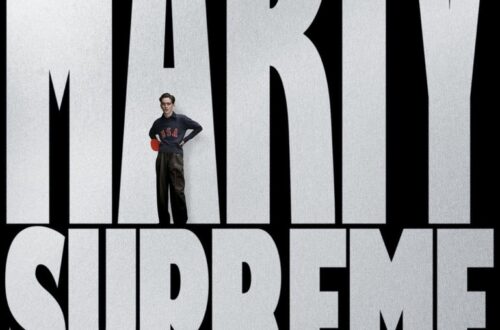From the opening frames of Die, My Love, director Lynne Ramsay plunges us unflinchingly into the raw turbulence of new motherhood, marriage, and isolation. The film centres on Grace (Jennifer Lawrence), a young woman uprooted from the bustle of New York and dispatched with her husband Jackson (Robert Pattinson) to his family home in rural Montana. What begins as a seemingly serene escape becomes a suffocating inward spiral: Grace’s postpartum transformation is rendered with a feral vitality that crescendos into something both unnerving and mesmerizing. People.com+4Wikipedia+4Rotten Tomatoes+4
Lawrence seizes the film with a performance that burns at its edges: she is unafraid of the physical, emotional and aesthetic extremities inherent to this story. Critics have seized upon her “unruly” intensity and marked this as a potential career-defining turn. Cinemablend+1 Within the massive frame of the 4:3 aspect and the washed-out palette, Ramsay together with cinematographer Seamus McGarvey crafts a visual language of claustrophobia and seeped dread. The Washington Post
Pattinson as Jackson is the opposite pole: calm, competent-on-the-surface, yet quietly lost. The relationship he shares with Grace is less about warmth than about shared bewilderment and fear, the kind that blossoms when one partner falls through the floor of their own psyche and the other doesn’t know whether to reach or let fall. Their dynamic carries the film, but it is ultimately Lawrence’s performance that commands the field.
The narrative, adapted from Matate, amor (Die, My Love) by Ariana Harwicz, takes few comforting detours. Grace’s disintegration is not plotted neatly or politely; instead it is delivered as a series of shards: crawling through fields, barking like a dog, licking glass, rejecting her maternal role even as she is swallowed by it. “You’re kind of going through incredibly similar stuff,” Pattinson takes on the role of the husband with real-world resonance. People.com+1
Still, despite the strengths, the film does strain under its own ambition. The atmosphere is richly oppressive and the formal choices bold, but the emotional architecture sometimes feels under-built. Key moments of background, context, even character motivations are suggested rather than excavated. As one review put it: “while visually striking and anchored by Lawrence’s compelling portrayal, Die My Love lacks the narrative depth to fully resonate with its themes.” The Washington Post
For viewers willing to be shaken rather than soothed, the film offers a bracing confrontation with motherhood, identity, and the subterranean violences of domestic life. Ramsay asks us not simply to witness Grace’s breakdown but to inhabit it. And thanks to Lawrence’s fearless commitment, the film becomes less about what happens and more about what happens inside. The ending does not wrap the threads neatly — it leaves you suspended in the blur between self and role, caregiver and monster, love and collapse.
Whether you will emerge from the theatre haunted, disturbed, or simply exhilarated will depend on how much disruption you’re willing to tolerate. But make no mistake: Die, My Love is not comfortable, and that is very much the point. This film does not ask for your easy empathy — it demands your attention.




